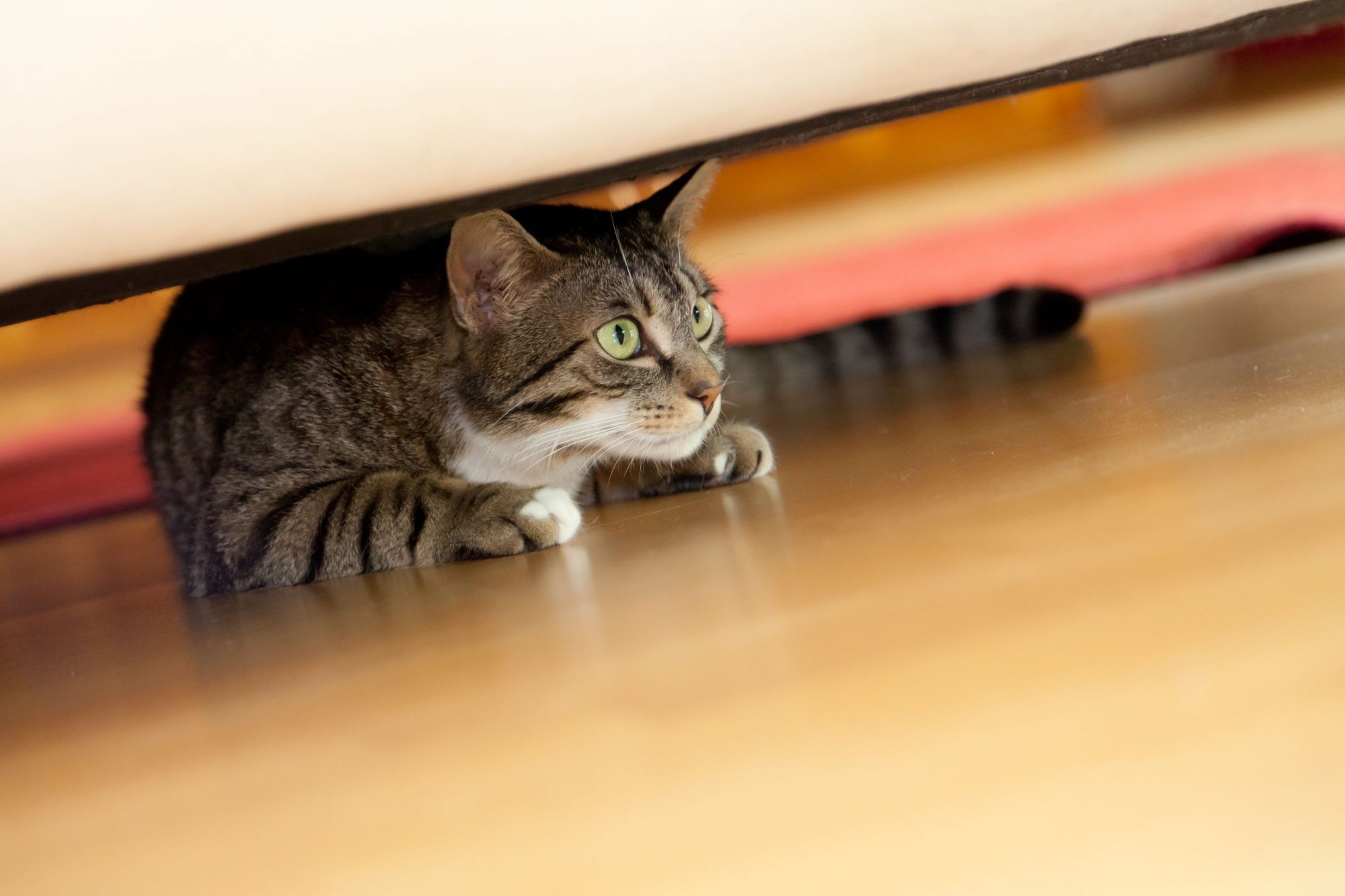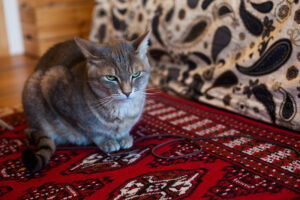Índice do Conteúdo
A cat with an anxiety disorder is a frightened cat. Something has happened in its life to make the cat fearful. It could have been loud noises, mistreatment, a fall, or any event that caused trauma. If your cat is overly sensitive to sounds or abrupt actions, anxiety is likely the cause. A specialized cat veterinarian can diagnose this condition and help you understand how to address it.
Why Is My Cat So afraid?
Cats, by nature, are cautious animals. They don’t like change. Have you noticed your cat creep slowly into a room after you’ve rearranged the furniture? When visitors come to your house, do your cats hide? These behaviors do not always suggest anxiety. Cats are careful creatures.
How Can I Tell If My Cat Has Anxiety?
There are degrees of anxiety disorder, ranging from mild to severe. If you’ve had your pet for a while, you know when its behavior changes. If you have recently adopted a kitten, you can’t know if it has suffered trauma before it came to you. You also may not realize that a cat in your care has been traumatized in your household. What doesn’t bother you might terrify your pet!
Signs of Anxiety in Your Cat
It seems like your cat is more nervous than usual. You’re worried that something is wrong. Consider these signs of cat anxiety:
Increased nervousness and can’t settle downPacing also indicates nervous anxietyHiding more often from family and other pets in the houseLoss of appetiteMore vocalization than normalWary, more cautiousShakingDroolingCompulsive grooming
Your cat could have an underlying health condition that’s causing anxiety. Be sure to mention changes in your pet’s behaviors during wellness check visits or call Cat Care at Vinings at (404) 792-0700 to schedule an appointment.
How Do I Know When My Cat Needs Help?
Mild anxiety in humans and animals can be expected. We all feel anxious in times of stress. Have you recently moved, brought a new pet into the family, is there a new baby in the house? These are big changes for a cat and will cause a stress or anxiety reaction.
Moderate anxiety in cats will display more in your pet’s physical behavior such as crouching, keeping its tail close to the body, dilated pupils, rapid breathing. Try talking to your cat in soothing tones, holding and petting it, and introducing distractions. If your cat’s symptoms worsen, please call Cat Care at Vinings for help with your pet.
Do your best to intervene before your cat reaches such a fearful state that it cannot move or becomes aggressive.
What If I Can’t Calm My Cat?
Your cat will not just snap out of a state of moderate or severe anxiety. The reasons for its fear are real to your pet. If you’ve done everything you can to calm your pet, it’s time for medical intervention. Your trusted veterinarian at Cat Care at Vinings will give your cat a thorough exam including blood and fecal tests to determine if there is an underlying health reason for your cat’s anxiety.
If the diagnosis proves to be an anxiety disorder, we can help. We’ll talk to you about your cat’s environment, what medications may be needed, and explain how behavior modification training can help your cat be less fearful.
The team at Cat Care at Vinings is ready to help with your pet’s wellness issues. Schedule a wellness visit today at our cat-only, fear-free clinic.








